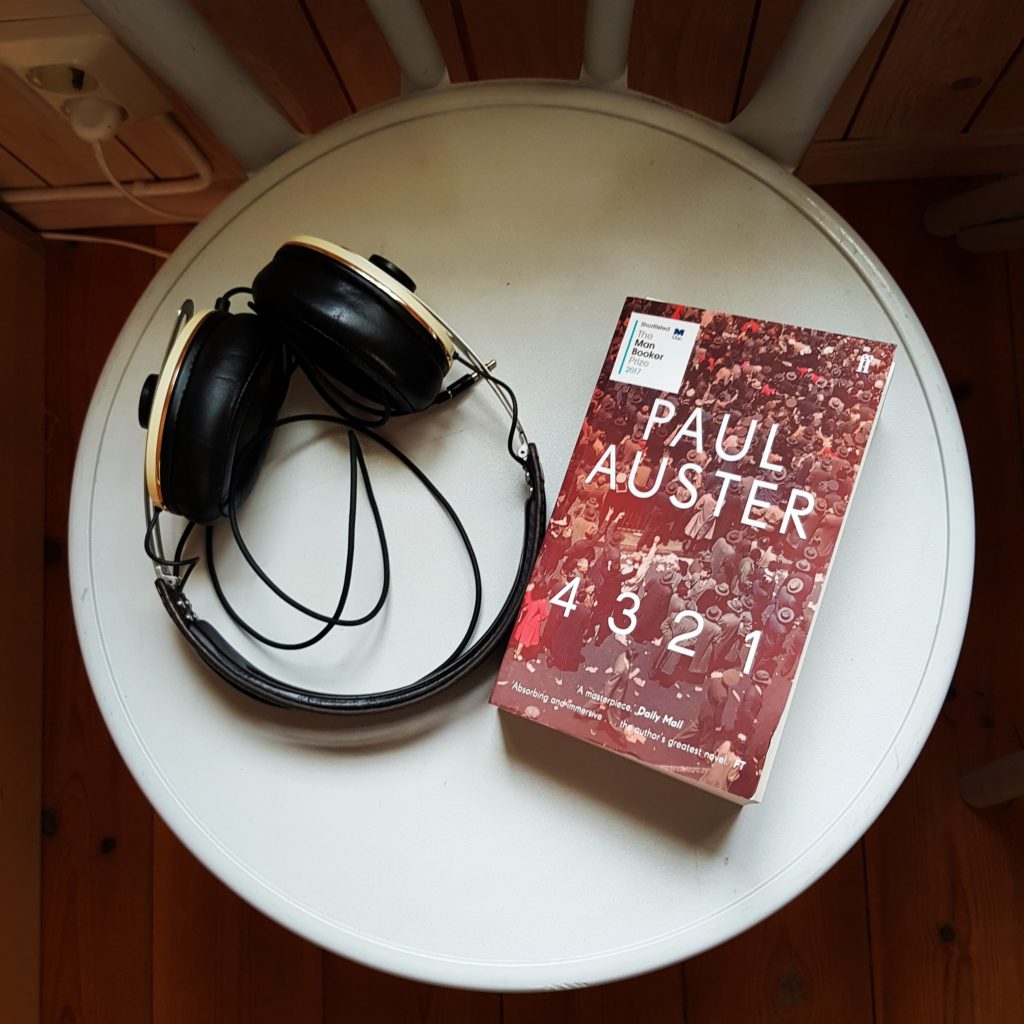Paul Auster’s ”4 3 2 1” starts off by defining the preamble of it’s protagonist, Archie Ferguson. Presenting his parents, how they met, and the very beginnings of Ferguson’s existence. Then it forks off into four separate trajectories, based on different turn of events affecting life’s direction and the young man’s perception of it.

The four stories of Ferguson is an exploration of predisposition. The inclinations we have based on heritage. Directions we take through experiences that push us to choose and develop certain talents over others, and how the same talent can be expressed in many ways.
On the surface this is just another book obsessing over writing and writers, as Ferguson is drawn to literature and writing in every incarnation. That would however be a superficial conclusion. This is a story of seized opportunity and of untapped potential. The randomness of life and death. Of success and happiness and how the two might not be coherent or at all related.
It explores different types of love and relationships. Love of parents, love of soulmates. Those who we are instinctively and immediately drawn to and those we might come to love as a result of friendship or by prolonged exposure to their person. Sexual awakening and sexual specifics and sex in general.
If the book had truly obsessed over writers, Ferguson would probably have been presented as a much more interesting character – something which he is not. Ferguson is the centre of the story, but is in himself only a small part of the book as a whole. 4 3 2 1 demands attention and reflection. You need to jam the whole thing into your head, then let your intuition mull it over for a while to fully grasp it’s depths and multitudes.
Because Auster is an amazing writer, able to sneakily plant life’s complexity into the readers subconscious, but he is also a massive show off. He really wants everyone to know how good and clever he is, with sometimes tedious results. I can’t help thinking this book could’ve been written using fewer words – maybe even by dropping an entire life arch – because at almost 1100 packed pages this book is definitely an undertaking. If nothing else, surely the incessant name dropping of authors, poets, writers, and artists that go on for full pages could’ve been shorter?
But, with that said, I am not Paul Auster and thus not qualified to tell Paul Auster how Paul Auster should write. The book was not as rewarding a read as I’d hoped, but nonetheless an achievement for the author. Few could pull off the plurality and cheer volume of this venture.